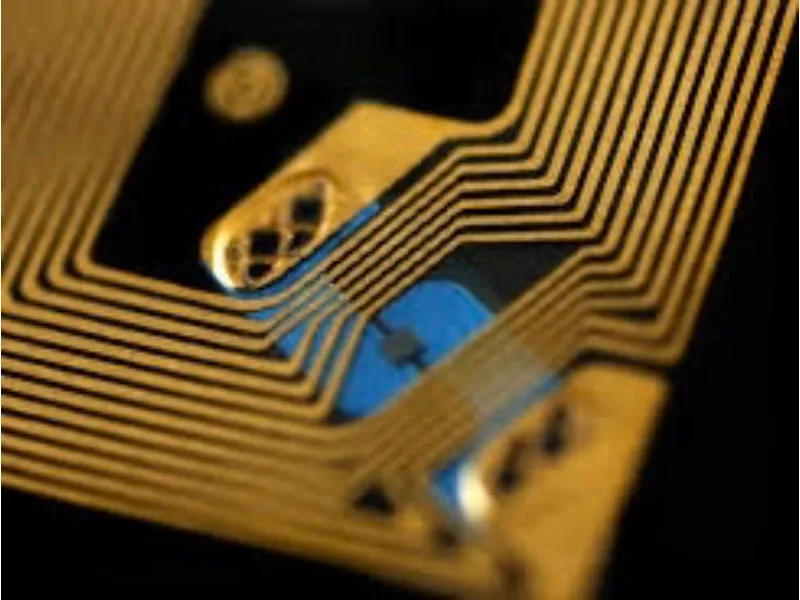- Radio Frequency Identification (RFID) is a technology that uses electromagnetic fields to automatically identify and track tags attached to objects.
- RFID protection is crucial in various scenarios where personal and sensitive information is at risk.
As the world embraces the convenience of wireless technology, ensuring the security of personal information has become paramount. One crucial aspect of this is RFID protection, a method designed to shield your data from unauthorised access. But what exactly is RFID protection, how does it work, and why is it essential in today’s digital age?
Understanding RFID and Its Vulnerabilities
Radio Frequency Identification (RFID) is a technology that uses electromagnetic fields to automatically identify and track tags attached to objects. These tags are embedded in various items such as credit cards, passports, and even clothing. RFID enables quick and contactless data transfer, making transactions and identification processes more efficient. However, the same technology that provides convenience also exposes users to potential security risks.
RFID-enabled cards and devices are susceptible to a form of digital theft known as skimming. Thieves equipped with RFID readers can scan these cards from a distance, extracting sensitive information without the cardholder’s knowledge. This can lead to unauthorised transactions, identity theft, and other forms of cybercrime.
Also read: 25 smart home and IoT technologies that might just change your life
Also read: Common protocols used by IoT devices
How RFID protection works
RFID protection involves the use of materials and devices designed to block or disrupt radio frequency signals, preventing unauthorised scans of RFID-enabled items. Here’s how RFID protection typically works:
RFID blocking material: Products like RFID wallets, sleeves, and bags incorporate materials such as aluminum or carbon fiber that create a barrier against radio waves. These materials absorb or reflect the signals, making it impossible for RFID readers to communicate with the chips inside your cards or devices.
Faraday cages: Named after the scientist Michael Faraday, these enclosures are made of conductive materials that shield the contents from electromagnetic fields. An RFID-protected item essentially acts as a mini Faraday cage, preventing any external signals from reaching the RFID chip.
Encryption: Some advanced RFID systems use encryption to protect the data stored on the chip. Even if a thief manages to scan the card, the encrypted information would be unreadable without the appropriate decryption key.
Applications of RFID protection
RFID protection is crucial in various scenarios where personal and sensitive information is at risk.
Financial security: Credit and debit cards with RFID chips are common targets for skimming. RFID-blocking wallets and card sleeves are designed to protect these cards, ensuring that your financial data remains secure.
Travel safety: Passports and travel documents equipped with RFID chips store personal information that can be skimmed by cybercriminals. RFID-protected passport covers and travel wallets help safeguard your identity and travel details.
Corporate security: Many companies issue RFID-enabled access cards for their employees. Protecting these cards with RFID sleeves prevents unauthorised access to secure areas and sensitive information.
Everyday convenience: Items like RFID-protected bags and clothing pockets ensure that you can carry your RFID-enabled devices and cards without worrying about electronic theft, whether you’re commuting, shopping, or traveling.
The importance of RFID protection
In a world where contactless technology is becoming ubiquitous, the need for RFID protection is more critical than ever. As the adoption of RFID in everyday items increases, so does the potential for cybercrime. Protecting your RFID-enabled items is not just about preventing financial loss; it’s about safeguarding your personal identity and ensuring peace of mind.
With incidents of identity theft and electronic pickpocketing on the rise, investing in RFID protection is a proactive measure to secure your data. Whether through RFID-blocking wallets, sleeves, or bags, these protective measures provide an effective shield against unauthorised scans.
RFID protection is a vital aspect of modern security, designed to combat the vulnerabilities of RFID technology. By understanding the risks and implementing protective measures, individuals can enjoy the convenience of contactless transactions and identification without compromising their security. As we continue to navigate a wireless world, RFID protection remains an essential tool in our digital safety arsenal.

